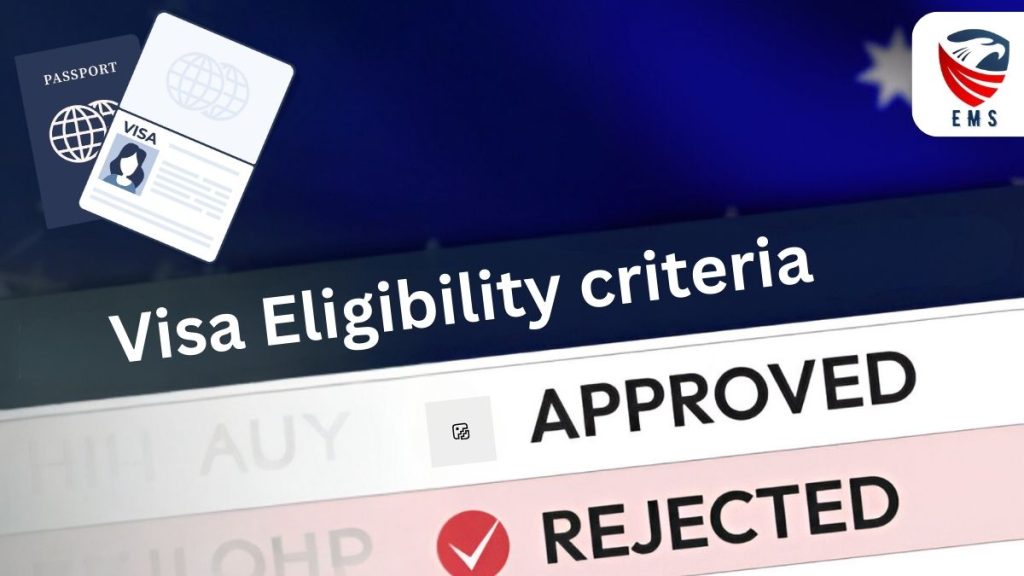Introduction
A visa eligibility criteria basis is a set of requirements that decide if an individual is eligible for a selective type of visa. These criteria differ based on the visa category, the reason for travel, and the country issuing the visa.
They are formed to ensure that candidates have a legitimate purpose for entering a country and that they fulfill needful financial, legal, and health levels.
Visa Eligibility Criteria
Here are the mentioned visa eligibility criteria are as follows:
1. Purpose of Travel
The reason for travel is a foundational element of visa eligibility criteria. Visas are usually categorized by travel intent, which can incorporate business, tourism, family reunification, study, employment, medical treatment, or transit.
Each reason has distinctive visa categories, such as business visas, tourist visas, student visas, work visas, and family visas.
2. Proof of Financial Stability
Most visa types need applicants to show that they have enough financial resources to assist them during their stay.
This need ensures that the applicant won’t become a financial load on the host country. Usually, applicants are asked to give recent proof of income, bank statements, or sponsorship letters from family or an employer. Student visas generally have selective financial criteria to cover accommodation, tuition fees, and living expenses.
3. Good Health and Medical Examinations
Health is a unique crucial aspect of visa eligibility criteria, specifically for long-term stays. Certain countries need a medical examination to ensure that the applicant does not have contagious diseases or health conditions that could affect public health systems.
4. Criminal Background Check
Most countries need a background check to ensure that the candidate has no criminal record that could create a threat to national security or public safety.
This might include affidavits of good character, police clearance certificates, or other documents from law enforcement authorities. Some visa types might have stricter needs; for instance, the U.S. and Canada have strong policies regarding criminal records, specifically for violent offenses or fraud.
5. Proof of Ties to Home Country
Proof of ties to the applicant’s home country is significant for specific types of visas, mainly for tourist and visitor visas, to avert the risk of overstaying.
The applicant should demonstrate a purpose to return to their home country, such as property ownership, a stable job, family obligations, or educational commitments. This need is formed to avert applicants from using short-term visas to stay in a country permanently.
6. Age Restrictions
While age itself is not always a straight factor, specific visa categories might have age-based criteria. For instance, working holiday visas generally have age limits, such as 18 to 30 or 35 years.
Similarly, some skilled migration programs might favor younger applicants due to the need for a longer working life and flexibility.
7. Educational and Professional Qualifications
Skilled work visas generally need applicants to have specific educational qualifications, professional certifications, or relatable work experience. Countries like Canada, Australia, and New Zealand, give points-based immigration programs, and award points for language skills, higher education, and professional experience.
8. Language Proficiency
Language proficiency is generally significant for applicants of student or work visas and for countries with skilled migration programs. Proof of language skills in English, French, or other official languages of the host country might be needed. Applicants usually take standardized tests, such as the IELTS or TOEFL for English, to show proficiency.
9. Sponsorship and Invitation Letters
Some visa types need a sponsor or an invitation from a resident of the host country. This is ordinary for family visas, where a family member residing in the country sponsors the applicant, or for business visas, where an invitation from a business or conference organizer is compulsory.
The sponsor may be required to meet selective financial and residency needs to support the application.
10. Adherence to Immigration Laws
Adherence to immigration laws and previous visa conditions plays a significant role in visa eligibility criteria. Applicants who have earlier overstayed disobeyed visa terms, or have been deported might face challenges in getting visas. Consulates and embassies evaluate applicants’ immigration history to gauge their likelihood of adhering to visa conditions.
Conclusion
Visa eligibility criteria differ based on the visa type and the host country’s regulations, but they usually incorporate factors like the reason for travel, financial stability, health, criminal background, and bind to the applicant’s home country.
Knowing and preparing for these criteria can grow an applicant’s chances of getting a visa, enabling seamless and more efficient international travel and migration. So get in touch with the EMS Visa Consultant who has the proper knowledge of visa regulations updates.



